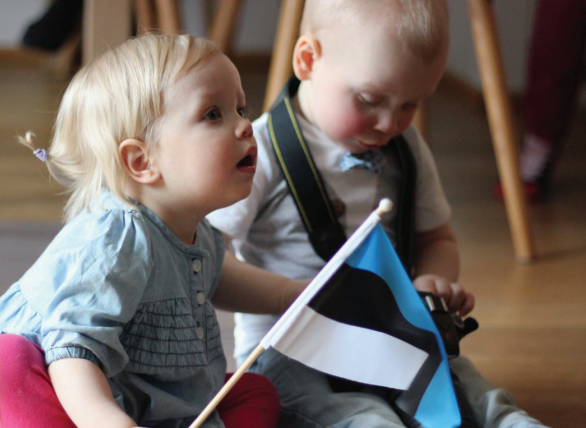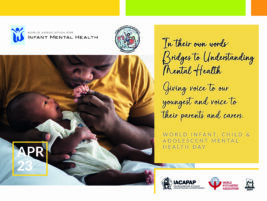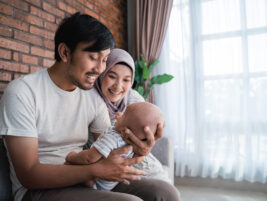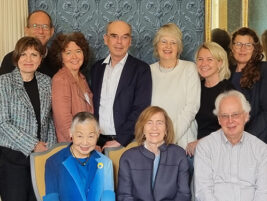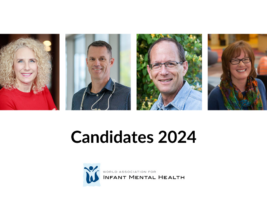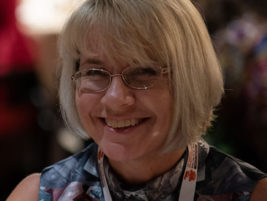Let us welcome the Estonian Association for Infant Mental Health by joining hands around the world in support of good mental health for Eastonian babies, very young children and families. We are so very glad to introduce you to the WAIMH community.
Estonian Association for Infant Mental Health – Eesti Väikelaste Vaimse Tervise Liit – was founded on 21.11. 2014 by professionals who work with children and who have long been interested in the promotion of early childhood mental health. The idea to create the association came about when the three current members of management underwent a year’s training in London – International Training School for Infancy and Early Years, organized by Anna Freud Centre, Yale University Child Study Center and The Tavistock and Portman NHS Foundation Trust. After the training, they began to share the new knowledge in a systematic way, and thus a group gathered who have taken the promotion of mental health of young children to heart.
About Estonia:
Estonia is located in Northern Europe, our neighbors are Russia, Finland and Latvia. Estonia has an area of 45 339 square kilometers and 1.3 million inhabitants. Estonia’s main ethnicity is Estonians, who make up 69.72% of the population. The largest minority group is Russians, who make up 24.8% of the population. Estonia’s official language is Estonian.
The Estonian health care system is built on the principle of compulsory solidarity-driven health insurance and private providers of services for universal access. All children are secured for treatment and every child has a family doctor who will monitor the child’s development, and to whom one can turn to when a child becomes ill.
Problem spots are the fact that mental health services don’t cover the current need, especially few there are not enough services for smaller children and there are few proactive activities and programs. Overall awareness of mental health problems is low.
For families with small children it is very important, that parental benefit is applicable. Before the child reaches 70 days of age, the mother is entitled to the benefit, after that both parents are entitled to the benefit on a turn by turn basis. The right to parental benefit begins after the last day of maternity leave and the benefit is paid for 435 days or 18 months.
Estonian mothers are usually working as the employment rate for Estonian women aged 20-64 is above the EU average. In 2016, 67.5 percent of 20-64-year-old women were participating in the labor market.
Education is in Estonian. The first Estonian ABC book was published in 1575. School attendance is compulsory in the 7-17 years of age, the state ensures free education for children in this age. The nurseries and kindergartens network is well developed, partly funded by the local government, but a large part of kindergarten fee is for parents to bear. Some children go to childcare at 18 months old, when the mother’s parental allowance ends and she returns to work, but quite often the mother or father of the child stays at home until the child reaches two years of age.
The aim of the EAIMH is to develop cooperation between people who want to create and secure an environment where children’s growth and the development of affection between parents and children can take place in the best possible way. EAIMH organizes various training courses and workshops in order to disseminate public scientific knowledge from various child-related areas, create interest in the society on the topic of children’s mental health and to highlight the importance of safe development in the first few years of a human’s life, share knowledge and generate discussion about the importance of the mental well-being of the families, parents and carers, share knowledge about children’s mental health with professionals working with children and to promote mental well-being of professionals working with children.
We are an enthusiastic group, we strive to keep up with new knowledge on early childhood mental health and share the knowledge in different places across Estonia, including smaller towns and communities.
Board of the EAIMH:
President: Piret Visnapuu-Bernadt, child psychiatrist, psychoanalytic child- and adolescent psychotherapist,
Members: Tiina Valvas- child psychologist, psychoanalytic child- and adolescent psychotherapist,
Sirje Rass- child psychologist, psychoanalytic child- and adolescent psychotherapist,
Kristel Amjärv- general practitioner, pediatrician,
Diana Kuntor- preschool teacher, experience advisor.
Estonian Association for Infant Mental Health
Authors
EAIMH
Estonia


